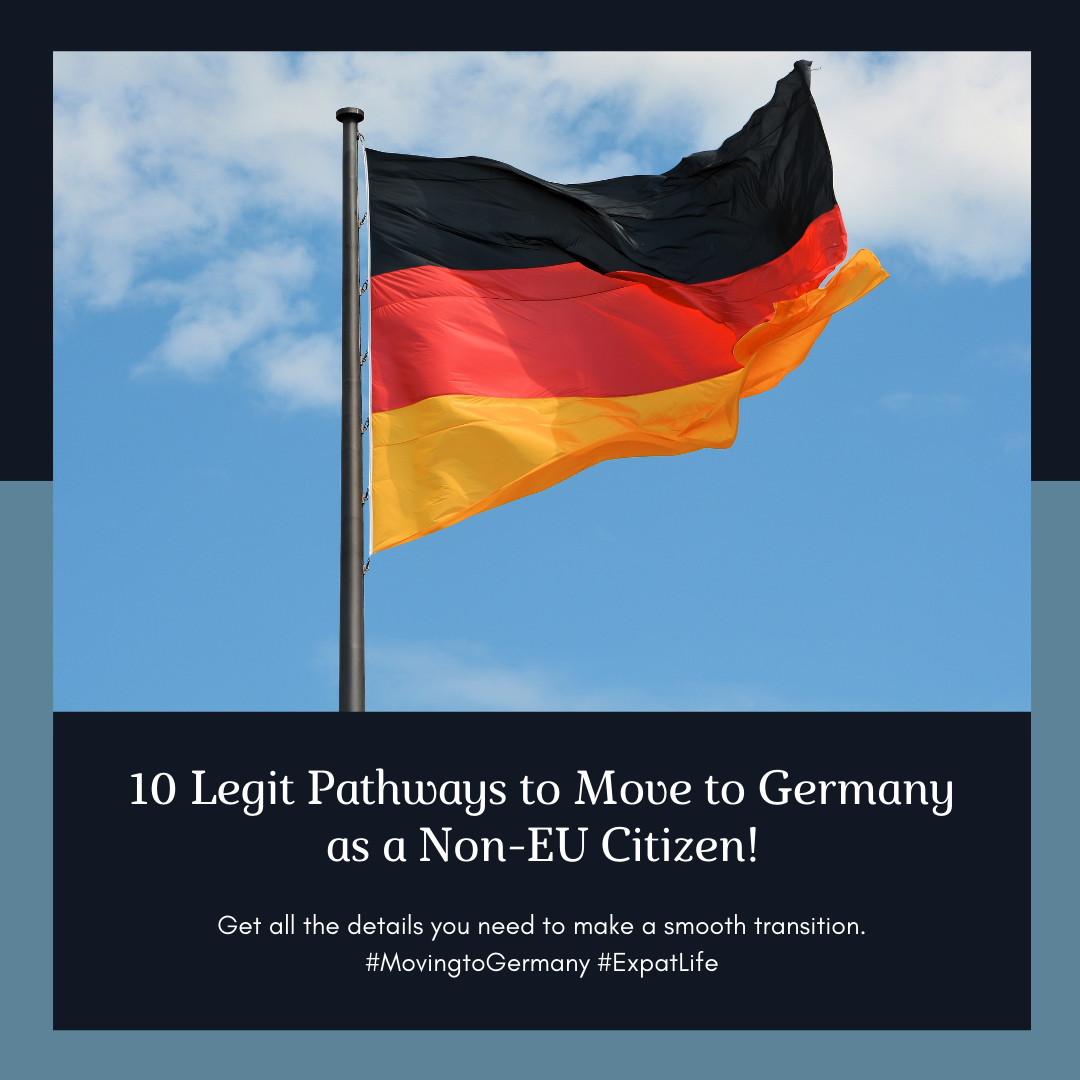Lithuania is currently facing labor shortages across 59 different professions, according to the most recent EURES report.
Sectors experiencing the greatest impact include cleaning services, food industries, manufacturing, healthcare, education, and construction.
Despite stricter immigration policies, Lithuania remains the second-easiest country in the EU to secure a work visa.
The 2023 EURES report on job shortages and surpluses highlights the following 59 occupations where workers are in short supply:
According to the EURES report, the following roles emerged among shortage occupations in Lithuania.
| Category |
| Garbage and recycling collectors |
| Fast food preparers |
| Garden and horticultural labourers |
| Livestock farm labourers |
| Hand launderers and pressers |
| Crane, hoist and related plant operators |
| Earthmoving and related plant operators |
| Heavy truck and lorry drivers |
| Bus and tram drivers |
| Packing, bottling and labelling machine operators |
| Wood processing plant operators |
| Pulp and papermaking plant operators |
| Food and related products machine operators |
| Paper products machine operators |
| Plastic products machine operators |
| Chemical products plant and machine operators |
| Upholsterers and related workers |
| Sewing, embroidery and related workers |
| Garment and related patternmakers and cutters |
| Tailors, dressmakers, furriers and hatters |
| Bakers, pastry-cooks and confectionery makers |
| Butchers, fishmongers and related food preparers |
| Electrical line installers and repairers |
| Electrical mechanics and fitters |
| Building and related electricians |
| Agricultural and industrial machinery mechanics and repairers |
| Metal polishers, wheel grinders and tool sharpeners |
| Metal working machine tool setters and operators |
| Toolmakers and related workers |
| Structural metal preparers and erectors |
| Sheet metal workers |
| Welders and flame cutters |
| Spray painters and varnishers |
| Plumbers and pipe fitters |
| Plasterers |
| Building frame and related trades workers not elsewhere classified |
| Concrete placers, concrete finishers and related workers |
| Bricklayers and related workers |
| House builders |
| Forestry and related workers |
| Service station attendants |
| Cooks |
| Medical imaging and therapeutic equipment technicians |
| Process control technicians not elsewhere classified |
| Construction supervisors |
| Manufacturing supervisors |
| Mechanical engineering technicians |
| Electrical engineering technicians |
| Psychologists |
| Special needs teachers |
| Early childhood educators |
| Primary school teachers |
| Secondary education teachers |
| Pharmacists |
| Nursing professionals |
| Specialist medical practitioners |
| Electrical engineers |
| Civil engineers |
| Construction managers |
Non- EU/EEA citizens of must have a work visa and choose between four work permits, depending on their job application.
Only people with a residence permit are allowed to work in Lithuania’s territory.
Lithuania ranks as the EU’s second easiest country to secure a work visa, following Estonia, according to the VisaGuide.World.
In order to move and work in Lithuania, you must first obtain a job offer from an employer in the country.
After you have successfully submitted all the relevant documents to your employer, they will, then, be in charge of submitting the work permit application to the Lithuanian Labor Exchange.
The Labour Exchange issues the work permit.
However, there is a chance for non-EU citizens to work in Lithuania without a permit.
If the job demands high-level professional qualifications, the employee can obtain a decision on compliance with labor market needs. If you are approved under this decision, you must, then, apply for a temporary residence permit instead of a National visa (D) or a Lithuania Work Visa.
A decision on the compliance of foreign work with Lithuanian labour market needs is issued for up to two years. Based on this document, a foreigner can apply for a residence permit in Lithuania. The foreigner can only start working after obtaining a residence permit.
Important! Highly qualified professionals applying for a Blue Card do not have to apply for a decision on the compliance of foreign work with Lithuanian labour market needs.
The Blue Card (EU Blue Card, Directive 2009/50/EC) is a permit to legally reside and work in Lithuania and move to another EU Member State to work in a highly skilled job.
In Lithuania, the Blue Card is a temporary residence permit.
In Lithuania, a blue card (i.e. a temporary residence permit) is issued in the following cases:
- If you intend to work in an occupation which is included in the list of high value-added occupations for which there is a shortage of workers in the Republic of Lithuania, and you will be paid a monthly salary of not less than 1.2 times the average monthly gross wage in the national economy (including data on the wages of individual enterprises) published by the Lithuanian Statistics Department in the latest calendar year
- If you intend to work in an occupation which is not included in the list of high value-added occupations for which there is a shortage of workers in the Republic of Lithuania, and you will be paid a monthly salary of not less than 1.5 times the average monthly gross wage in the national economy (including the data on the wages of sole proprietorships) as published by the Lithuanian Statistical Department for the last calendar year
When are foreigners not required to obtain a work permit or a decision on compliance?
- Nationals of EU and EFTA countries.
- Foreigners with a permanent residence permit.
- Third-country nationals who are family members of citizens of the Republic of Lithuania and have a residence permit issued on the basis of family reunification.
- Third-country nationals who have obtained residence permits on the basis of studies.
- A foreigner whose profession is included in the list of professions for which there is a shortage of workers in the Republic of Lithuania, according to the type of economic activity (in this case, quotas are applied. Once the quota is exhausted, foreigners who intend to work in the Republic of Lithuania must obtain a work permit. You can monitor the established quotas here ). The list of the 2024 shortage occupations can be found here.
- The salary to be paid to the foreigner will be no less than three average monthly gross wages.
- A foreigner who intends to work as a trainee or an intern.
- A foreigner who works remotely in Lithuania under an employment contract with a company operating in Lithuania.
- A foreigner applying for a Blue Card.
For more information on who is exempted from the obligation to obtain a work permit or a decision on the compliance of foreign work with Lithuanian labour market needs, see here (Section 5, “Foreigners working in the Republic of Lithuania”).
What should I do if I receive a work permit or a decision on the compliance of foreign work with Lithuanian labour market needs from the Employment Service?
After receiving a work permit issued by the Employment Service or a decision on the compliance of foreign work with Lithuanian labour market needs, the employer must fill out a mediation letter in the MIGRIS system, on the basis of which the foreigner can apply for a national visa or a residence permit.
An employment contract with several employers may be concluded. In this case, the first employer submits the mediation letter, but all employers must meet the conditions for obtaining a temporary residence permit.
What is the difference between a national work visa and a work-based residence permit?
National visa (D)
- Issued for a maximum period of one year.
- Allows entry and stay in Lithuania for the duration of the national visa
- Allows a maximum of 90 days in any 180-day period within the Schengen area
- The foreigner is not issued a personal identity number
- The foreigner cannot declare their place of residence in Lithuania
- The foreigner is not covered by CHI
- The foreigner can’t be self-employed
- Cannot change employer
Residence permit in Lithuania
- Can be issued for 1−3 years on the basis of employment
- To apply for and withdraw a residence permit, foreigners can either abroad through an external service provider or at the branch of the Migration Department.
- Gives the foreigner the right to stay in Lithuania for the duration of the permit
- The foreigner is issued a personal identity number
- The foreigner can declare their place of residence in Lithuania
- Allows a maximum of 90 days in any 180-day period within the Schengen area
- To obtain a permit, you need to submit more documents: a clean criminal record, a promise to declare your place of residence
- The residence permit may be renewed on expiry
- Employer or job function can be changed with permission from the Migration Department
- The foreigner is covered by the CHI
- Might be self-employed (but this is not grounds for granting a residence permit)
If the work visa/residence permit was issued on the basis of employment, the employer must inform the Migration Department within seven business days of the end of the employment relationship. The Migration Department cancels the foreigner’s document and they must leave Lithuania.
If a foreigner arrives in Lithuania on a national work visa, can they apply for a residence permit?
If the foreigner was issued a national visa (D) on the basis of employment, to obtain a work-based residence permit, the application must be submitted to the Migration Department 2−4 months before the visa expires.
More information about documents when coming to work to Lithuania
Following the entry into force of the amendments to the Law on the Legal Status of Aliens, which aim to regulate labour migration flows more efficiently, the procedures for employment of foreign nationals are becoming stricter.
Starting from 1 July 2024, foreigners who previously came to our country using the visa-free regime, national or Schengen visas, or residence permits issued by other countries will no longer be able to work in Lithuania.
From now on, such individuals will be required to obtain a temporary residence permit issued in Lithuania.
Temporary residence permits will not be required in exceptional cases only, when foreigners arrive in Lithuania legally and meet certain additional criteria exempting them from the obligation to obtain a work permit.
Such exceptions will apply:
- To foreigners who are sent to Lithuania and come to work as employees of a company established in a member state of the European Union or the European Free Trade Association;
- To crew members of ships sailing international routes under the flag of Lithuania;
- To foreigners coming to Lithuania for no more than three months a year to conduct affairs related to the conclusion and execution of contracts, staff training or equipment installation;
- To entrepreneurs who are shareholders and managers of companies;
- To highly skilled athletes;
- To performers;
- To journalists accredited by the Ministry of Foreign Affairs;
- To individuals officially engaged in religious activities;
- To foreigners who come to Lithuania to carry out governmental or voluntary programs recognized by the European Union or its member states;
- To lecturers and researchers who come to conduct scientific research as researchers, having labour or copyright contracts signed with scientific or research institutions;
- To nationals of economically developed countries (Australia, Japan, United Kingdom of Great Britain and Northern Ireland, United States of America, Canada, New Zealand, South Korea) who come to work or engage in other legal activities.
Foreigners who started working in Lithuania before the amendments to the Law on the Legal Status of Aliens came into effect will have the right to work until the end of their legal stay or until they acquire the right to work on other grounds provided for by the said law.
For example, a Belarusian citizen who came to Lithuania with a Polish national visa and is employed here per the shortage occupation list will be able to work as long as his or her visa remains valid.
If such a foreigner wishes to continue working in Lithuania, he or she should apply for a Lithuanian work-based temporary residence permit as soon as possible.
In such cases, the Migration Department advises to apply for new permits at least 4 months before the expiration date of the existing documents.



Sayenizde eski sevgilim bana dönmek istedi ve haftaya nişanımız var mutluluğumuzu size borçluyum sağolun var olun
Merhabalar herkese tavsiye ediyorum çok işe yaradı
Ne kadar teşekkür etsem az kalır size minnettarım
Söylendiği Şekilde Dürüst Ve Harbi medyum
Merhabalar bir çok işlem yaptırdım ve çok memnun kaldım teşekkürler
Sizlere çok teşekkür etmek isterim işlemim sizin dua ve dilekleriniz ile gerçekleşti işlemlerden çok memnun kaldım yaptıracak arkadaşların da güvenli bir şekilde yaptırabileceklerini söylemek isterim sizi tanıdığıma çok memnun oldum teşekkürler.
Daha önce bir sürü işlem denedim olmadı dolandırıldım paramı aldıktan sonra kimse telefonumu açmadı engellediler ama siz bambaşkasınız işini bilen güvenilir medyumsunuz ne zaman arasam açtınız hala çok şaşkınım sizi karşıma çıkaran arkadaşıma da burdan teşekkür ederim
Fethiye Esc diyince akla gelen 1 numara gerçek esc kızlarla tanışın
Göcek escort en elit escort sitesi
en güzel fethiye escort kızları ile tanışma fırsatını kaçırmayın
ucuz web hosing
affordable hosting works very well and healthy
Aşk büyüsü yapacak ciddi anlamda ilim sahibi ve tecrübeli bir medyum arıyordum hocamla karşılaştım işimi çözdü teşekkürler.